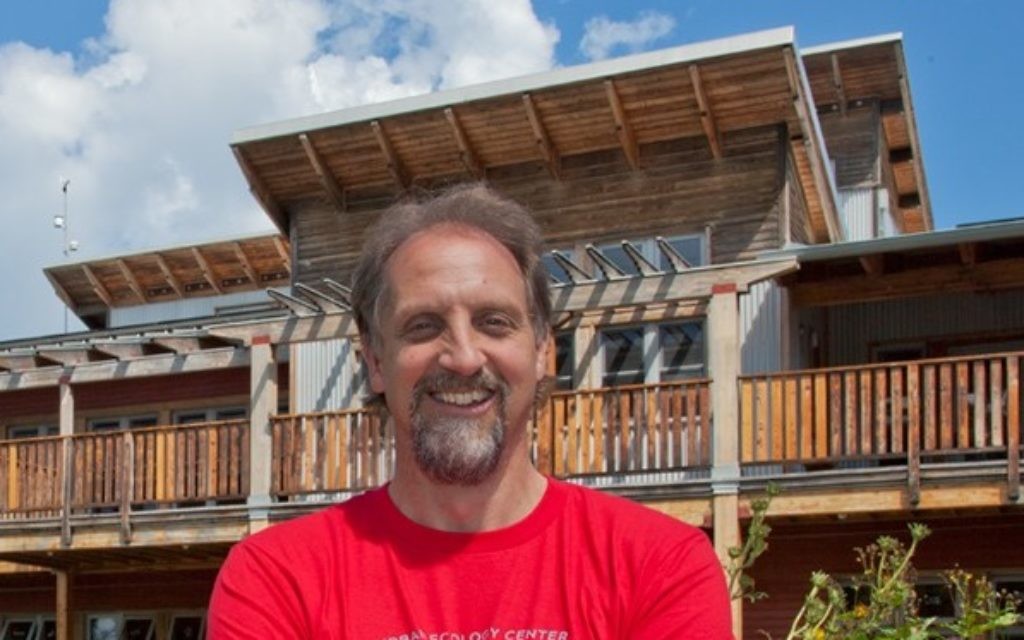Ecologist Finds Israelis Separated From Nature
Ken Leinbach is coming from Milwaukee to speak at the Carter Presidential Library in February.
A prominent ecologist and educator says Israel has a long way to go in terms of environmental sustainability.
Ken Leinbach, the founder of the Urban Ecology Center in Milwaukee, found that residents of Israeli cities are disconnected from nature, despite having an affinity for the land itself.
“Everything over there is pretty complex,” Leinbach said in a telephone interview as Tu B’Shevat approached. “There is a lot of love of land; that’s what Zionism is about, right? But as far as the actual treatment of the land, I was surprised how little consciousness there was. From the individual behavior perspective, I was expecting to find a higher level and how it impacts land.”
Get The AJT Newsletter by email and never miss our top stories Free Sign Up
Israel is known for its water conservation and ingenious use of energy, Leinbach said, “so you have this high level of technical understanding, but at the ground level it doesn’t seem that different from anywhere else.”
Leinbach was part of an ecological Partnership2Gether delegation from Milwaukee to Israel last year. In writing about that trip, he praised the long-term thinking demonstrated in Jewish National Fund’s planting of millions of trees over more than a century, but he also expressed shock at the garbage he saw.
“People fight for the spiritual meaning of land yet seem to miss the very basic respect and care for it,” he wrote.
Leinbach last year also wrote the book “Urban Ecology: A Natural Way to Transform, Kids, Parks, Cities, and the World.”
He will speak at the Jimmy Carter Presidential Library and Museum as part of its author series Thursday, Feb. 22, as a guest of Trees Atlanta, addressing sustainable design, urban environmental education, precarious planetary conditions, fundraising and green living, among other topics.
“I just got back from Guatemala, and it’s the same thing down there. People seem to think if you put something in water, it will go away, or you can throw your trash on the ground and someone else will pick it up. It’s a human problem, a universal truth,” Leinbach said.
The cities of Tiberias and Nesher in Israel are interested in creating a model based on Leinbach’s initiative from the Urban Ecology Center, which involves educating communities in city neighborhoods about conservation, sustainability and the environment and protecting and preserving natural areas such as parks and lakes.
“It’s also about offering people in an urban environment opportunities, such as volunteering and jobs, that they often don’t get. It’s offering a way of thinking,” he said.
Leinbach, who commutes to his Milwaukee office by bicycle or kayak, also helped start the Academy for Systems Change, which he describes as “an international think tank that focuses on how to get systems in place to better handle the magnitude of the problems we’ve created.” His motivation for getting involved in this kind of work is the desire to change human behavior.
“My belief is that we as a species on this planet are already headed into some danger zones in the way in which we’re handling infrastructure and ecological resources that sustain life,” Leinbach said. “Our collective actions are causing larger problems, but it’s the individual actions that impact the big picture, so if we’re not careful, we’re going to make some pretty big blunders.”
Who: Ken Leinbach, executive director, Urban Ecology Center
What: Lecture on urban ecology
Where: Carter Presidential Library and Museum, 441 Freedom Parkway, Atlanta
When: 7 p.m. Thursday, Feb. 22
Tickets: Free; www.jimmycarterlibrary.gov/events





comments